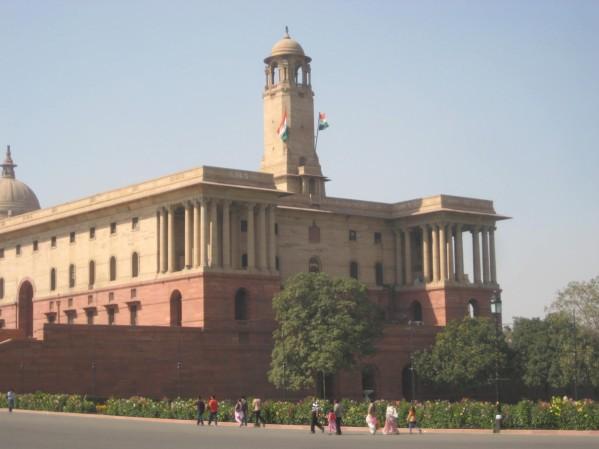![The building of the Ministry of Finance is seen in the background [Representational Image]. Ministry of Finance building in New Delhi](https://data1.ibtimes.co.in/en/full/607415/ministry-finance-building-new-delhi.jpg?h=450&l=50&t=40)
The central government is mulling the idea of introducing a short, time-bound, online financial bidding process in corporate insolvency cases to improve transparency and reduce litigation. The deliberation is going on with regard to the issue after the considerable delays were witnessed in the insolvency process.
As per the current process, the company's creditors, which are undergoing insolvency proceedings, are allowed to individually negotiate with potential bidders. The entire process results in offers getting revised and the final bids coming in after the deadline and associated litigation which further delays the entire process of insolvency, the Economic Times reported. The central government is planning to speed up the process of resolution proceedings by setting a time limit for financial bids along with the help of e-bidding.
Shedding light on the how the proposed window would function, corporate affairs secretary Injeti Srinivas said, "Once a resolution applicant submits a plan and the plan meets basic eligibility criteria, you can shortlist eligible ones and then give them a window for, say 48 hours, to do financial bidding on a platform."
The high-profile resolution cases of recent times have witnessed revised bids that have resulted in prolonged litigation which has eventually led to further delay in the insolvency process. Notably, one of the potential buyers, Tata steel in the Bhushan Power & Steel case has opposed acceptance of a late bid by Liberty House and a revised offer by JSW Steel. But the National Company Law Appellate Tribunal rejected the Tata Steel's appeals and the NCLT subsequently approved JSW Steel's bid.

Similarly, Ramdev-led Patanjali Ayurved and Adani Wilmar also made multiple bids for Ruchi Soya before Patanjali took over the company for Rs 4,350 crore in early September. The resolution process for Ruchi Soya had started in January 2018.
The central government has amended the Insolvency and Bankruptcy Code multiple times in the past to speed up the entire process. The government made a 330-day window mandatory to wrap up the whole process including the time taken for litigation. But many cases crossed the previous 270-day deadline as the time taken for litigation was not included in the process.
The experts now believe that the step would bring down litigation. Bishwajit Dubey, a partner at law firm Cyril Amarchand Mangaldas said, "It is likely to increase transparency, speed up the process and reduce litigation."

















